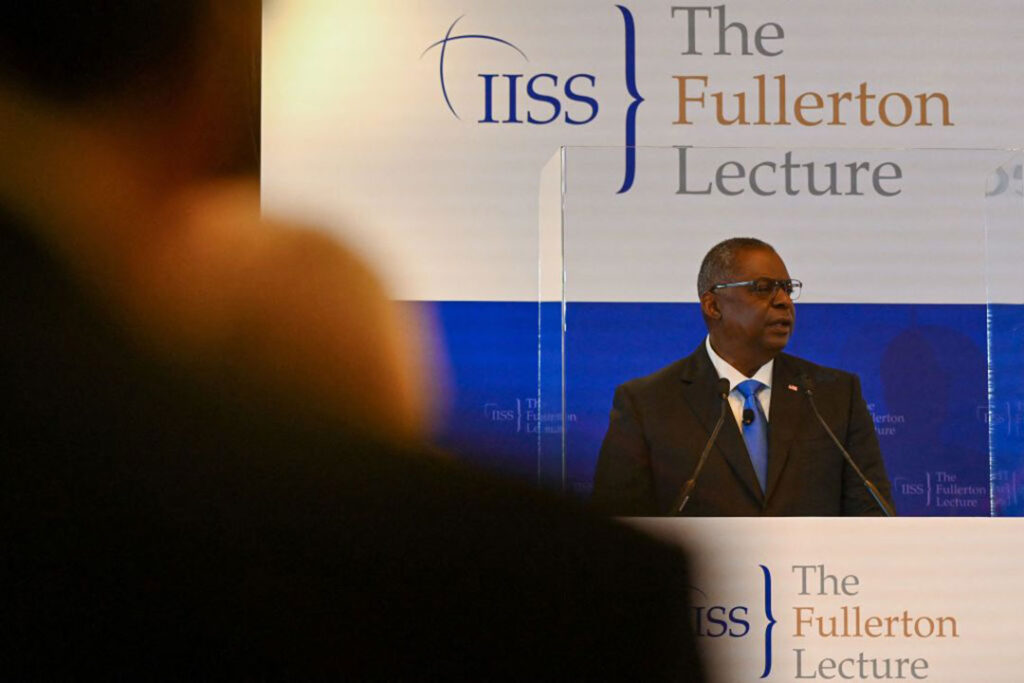REUTERS
United States Defense Secretary Lloyd Austin said he is committed to having a constructive relationship with the People’s Republic of China (PRC) and working on common challenges as he laid out his vision for ties with Beijing in a July 2021 visit to Singapore.
The U.S. has put countering the PRC at the heart of its national security policy for years, and President Joe Biden’s administration has called rivalry with Beijing “the biggest geopolitical test” of this century.
While Austin’s speech in Singapore touched on PRC actions the U.S. describes as destabilizing, from Taiwan to the South China Sea, his comments about seeking a stable relationship could provide an opening for the two countries to reduce tension. “We will not flinch when our interests are threatened. Yet we do not seek confrontation,” Austin said.
“I am committed to pursuing a constructive, stable relationship with China, including stronger crisis communications with the People’s Liberation Army.”
Austin, pictured, has been unable to speak with any senior Chinese official despite repeated attempts since becoming Defense Secretary in January 2021.
Even with the tension and heated rhetoric, U.S. military officials have long sought to keep open lines of communication with their Chinese counterparts to mitigate potential flare-ups and prevent accidents.
U.S. Deputy Secretary of State Wendy Sherman, the second-ranked U.S. diplomat, visited China’s northern city of Tianjin in late July 2021 for meetings with her Chinese counterparts. “Big powers need to model transparency and communication,” Austin said.
The speech by Austin, who also visited Vietnam and the Philippines to emphasize the importance of alliances, was closely watched by Indo-Pacific states worried about Beijing’s increasingly assertive behavior but heavily reliant on access to China’s large markets.
“We are not asking countries in the region to choose between the United States and China. In fact, many of our partnerships in the region are older than the People’s Republic of China itself,” Austin said.
The U.S. has been ramping up sanctions on the PRC over human rights abuses in Xinjiang and Hong Kong and has sought to rally allies and partners to help counter what the White House says is the PRC’s increasingly coercive economic and foreign policies.
IMAGE CREDIT: THE ASSOCIATED PRESS

